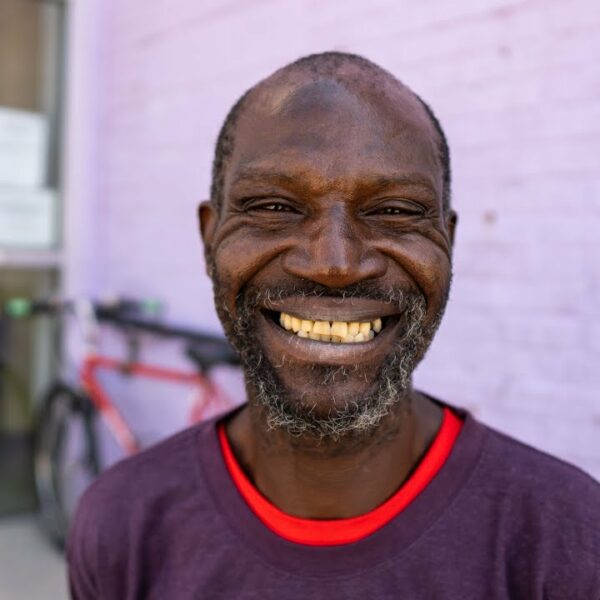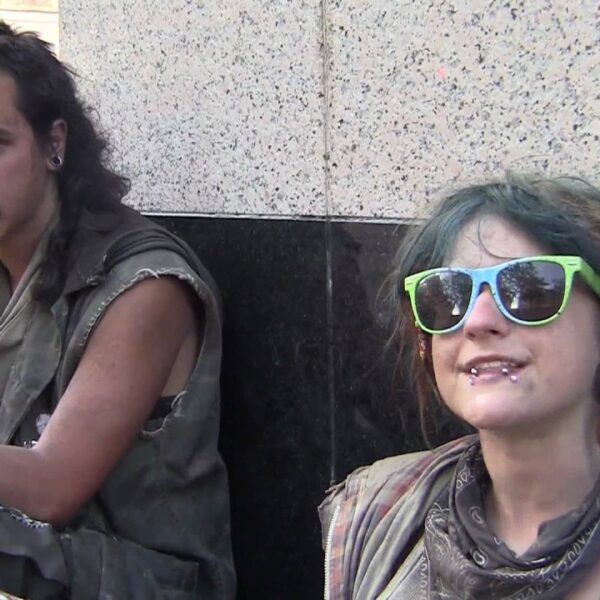Colorado’s stagnant marijuana market is starting to put some homeless service providers in a financial bind.
Part of the state’s marijuana sales tax collections go to local governments for homeless services. But Colorado’s marijuana sales have declined significantly over the last 18 months as consumers faced economic impacts stemming from the pandemic and additional states legalizing the plant. This has left cities like Aurora with less funding for homeless service programs, and advocates are worried.
“[Aurora] is trying to lessen encampments, but with a reduction in services, it’s going to increase encampments because folks won’t have anywhere to go,” Mile High Behavioral Healthcare Business Development Director Anna Miller told CBS News.
Colorado was one of the first states in 2014 to legalize marijuana for recreational use, and the plant quickly proved to be a potent tourist attraction. Since 2014, the state has sold more than $15 billion of marijuana products and collected over $2.5 billion in taxes, according to figures from the Colorado Department of Revenue.
The state redistributes its marijuana tax collections between three sources. Three-quarters of the collections go to the Marijuana Tax Cash Fund, which supports capital construction for public schools. Another 15% of the taxes go to the General Fund, where funding to support homeless service grant programs originates. Another 12.5% goes to the State Public School Fund.
But the state’s marijuana sales have declined from a high of $226 million in July 2020 to more than $122 million as of November 2023, representing an overall decline of 46%.
Denver is one city that expects to see its marijuana tax revenues decline in 2024, which could impact some homeless service providers.
Budget writers anticipate the city will collect $27 million of taxes from marijuana sales in 2024, a 63% decline from its peak in the summer of 2021. The city expects to spend about $8 million of that total on homeless services, CPR reported.
While the reasons for the decline are numerous, Miller said homeless service providers will acutely feel the impact.
Marijuana funds available for homeless services in Aurora dropped from $3.4 million in the fiscal year 2023 to $1.4 million in 2024, the Aurora Sentinel reported. In turn, Miller told CBS that her organization would receive just over $960,000 from the city next year compared to the $2.3 million it received in 2023.
“Food is one big thing that we’re being told won’t be covered. Another is our street outreach team,” Miller said. “They go throughout the city of Aurora to encampments and help folks with basic human needs like water, food, and clothing.”
Another nonprofit that the declining marijuana sales could impact is The Salvation Army, which runs two safe outdoor spaces in Aurora. The nonprofit asked Aurora for $1 million to help operate the spaces in 2024, but the city said it could only support about $180,000, local news station 9News reported.
“It is scary that if we don’t have funding, we have concerns about how we are going to continue operating those services,” said Kristen Baluyot, TSA’s social services director.
How You Can Help
Now is not the time to be silent about homelessness in Colorado or anywhere else. Unhoused people deserve safe and sanitary housing just as much as those who can afford rent or mortgage.
Poverty and homelessness are both policy choices, not personal failures. That’s why we need you to contact your officials and tell them you support legislation that:
- Streamlines the development of affordable housing
- Reduces barriers for people experiencing homelessness to enter permanent housing
- Bolster’s government response to homelessness
Together, we can solve homelessness.













